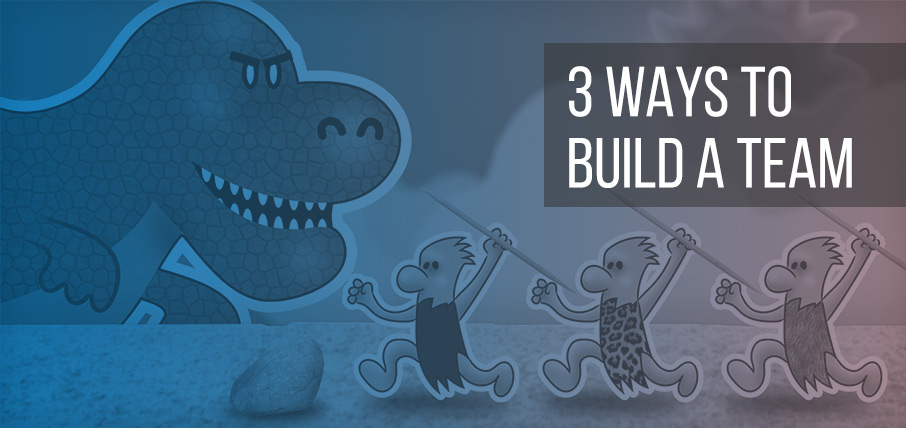
As leaders facing the challenge of building teams, we have 3 options:

Crisis
We have all seen the power of people working in an emergency, setting aside interpersonal conflicts and needs to focus on an outcome. Crises can be both empowering and instructional, especially in hindsight, in that they help build a shared experience. Beware, though, that the heady excitement of dealing with a crisis comes with stress hormones (principally adrenaline, cortisol and nor-epinephrine) that have real health effects. The team may also become accustomed to crisis behaviors that allow for disrespecting work-life balance, poor interpersonal relationships and narrow thinking. While the nature of crises frequently delays situational analysis, you can achieve productive insights by asking these questions of the situation, as soon as possible in the wake of the crisis:
- How did we get to a point of crisis?
- Are their early warning signs we could have responded to earlier to have prevented this?
- What did we gain dealing with the emergency, and what we lose?
- What can we do to both celebrate getting through the crisis and help avoid the next one?

Common Enemy
I once had a manager who gave me a team to run. This was not the happiest of teams at all, with both productivity and morale lower than ideal. Cue the first meeting, “Bob” comes in and acts like a jerk for about 10 minutes. Bob was not a jerk at all; in fact he was a gentleman and a fine manager. After the meeting I asked Bob,
"Did you experience shortness of breath, alongside your obvious stroke?"
He looked up and replied:
“Did they complain about me after I left”. Answer YES.
“Did they give you a hard time”. Err No. They were too frustrated with you.
Bob had provided us with a common enemy... HIMSELF.
More frequently, a common enemy can be another group or competitor. They provide a tangible comparison point to the team’s performance and goals. I would caution to pick a competitor you respect as it is less about them than it is about us. It is not about winning by any means necessary... it is about building a team by focusing on a target, real or imagined. Having a competitor who is honourable helps insulate the team from a desire to “win at all costs”.
Why respect? Simply you want to outperform your competition by being better at doing the right thing. Also losing to a respected competitor can be tremendously instructive. Winning, while marvelous and necessary, has less instructional value.

Common Cause
The most powerful way to build a team is through a well-defined outcome. This common cause can bind people together in a closely-knit team. Here is an exercise to try with a group... Ask each person to write out the goal of a project and compare the results. How aligned are people really ? As a project manager, you may have written a charter and got sign-off from the stakeholders, but what are the team members really thinking about the aim of this effort?
Again, questions to ask:
- Can we collectively agree on a successful outcome?
- Is this outcome noble; benefitting a broader community, our organization and us as individuals?
- Do we believe we can accomplish this cause?
If there is no specific outcome, there is no project. Lacking clarity of purpose, individuals in a group become aimless wanderers in Alice's Wonderland:
"One day, Alice came to a fork in the road and saw a Cheshire cat in a tree. ‘Which road to take?’ she asked. ‘Where do you want to go?’ was his response. ‘I don’t know,’ Alice answered. ‘Then,’ said the cat, ‘it doesn’t matter.”
Lewis Carroll
Each of these modes has a place, and if your team is well established, there is a good chance that all of them have been experienced at one time or another. Should you find yourself on a team where “crisis” or “common-enemy” becomes the norm, realize that this comes at a cost both to team members and to the effectiveness of the team.

